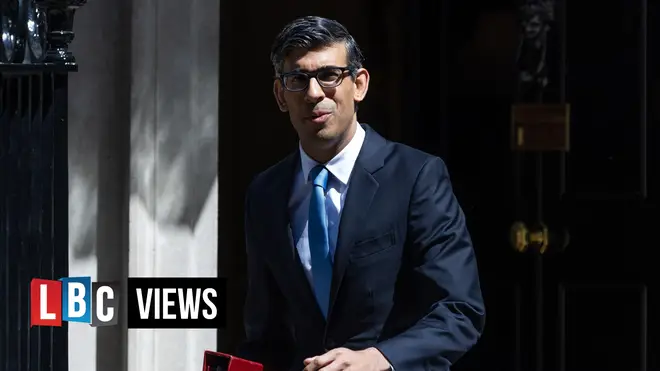
Tom Swarbrick 4pm - 7pm
2 June 2023, 09:56

Ahead of the May Bank Holiday, I was rather surprised to read that PM Sunak and Chancellor Hunt were rumoured to have suggested that they were prepared to threaten the vagaries of recession in favour of getting inflation ‘back on the bridle!’
The UK has seen twelve rate increases from 0.1% to 4.5% since December 2021 and yet inflation remains indecently rampant at 8.7%, having come down from its recent zenith of 11.1% in October 2022.
The cost of food, as we know, hit 19% and remains stubbornly steadfast in its reluctance to ease. The problem that may keep the Bank of England and the Government awake at night is core inflation – 6.8%. This figure is ex fuel, food and energy.
Wages demands are understandably robust, especially in the public sector and until this figure abates, high core inflation rates will prevent overall inflation and interest rates from falling.
Andrew Bailey, the Governor of the Bank of England and his MPC Committee have received a raft of criticism for taking far too long to take up arms against inflation.
Their reluctance to increase interest rates to fight inflation at the outset was perceived to have been overly cautious in comparison to the action taken by Fed Chairman Jay Powell’s at the FOMC.
Mr Bailey adopted this cautious approach to protect the economy. Figuratively speaking, he did not want to be seen as having ‘thrown the baby out with the bathwater!’
Covid, energy costs, the Ukraine crisis, the ‘supply chain’ and excessive quantitative easing have proved to be a venerably toxic cocktail taking inflation to levels, certainly not seen in the UK since 1979, when it reached 15% in the early Thatcher years.
Prior to that in 1975, it briefly touched 23% under the stewardship of the Heath Government, when Anthony Barber was Chancellor.
Lord King, the Bank’s Governor during the banking/credit crisis of 2008/9 believes that Central banks may have made a mistake printing more money – in other words quantitative easing.
In the case of the Bank of England, courtesy of Covid, it added another £400 billion to QE, making a total of £895 billion. In his opinion these global initiatives were inflationary, resulting in too much money chasing too few goods.
The Bank of England has retained its independence on inflation and monetary policy since Gordon Brown was Chancellor in 1997 and should continue to do so.
Mr Bailey and his colleagues will be cognoscente of the damage that very high-interest rates can inflict on the economy and especially to mortgagees – hence his cautionary approach. Many believe that 6% interest rates could send out distress signals. Just post the Truss/Kwarteng over-radical budgetary plans, gilt yields briefly hit 6%. Markets were underwhelmed and they vented their spleen against the Government.
Fiscal discipline has been restored under Sunak and Hunt. Calm has cautiously prevailed. However, gilt yields have been slowly rising (4.1%-4.4% in recent days), in the wake of comments made by the Governor, which suggests rates could reach 5.5% by November in an attempt to halve the rate of inflation in 2023.
Goldman Sachs believes inflation won’t hit the Bank’s comfort zone of 2% until 2026. Though the Bank remains fiercely independent, the Government will be keeping a careful watching brief on the MPC, as tackling inflation appears to be a prerequisite for Messrs Sunak and Hunt.
It’s a very brave call for the Government to put the country before their party fifteen months before a General Election. To risk a recession at this sensitive time, with a steely determination to suffocate inflation is a laudable challenge.
Further increases in interest rates could lead to lower house prices, less disposable income, and lower growth, resulting in higher unemployment – hardly a recipe for success with the electorate.